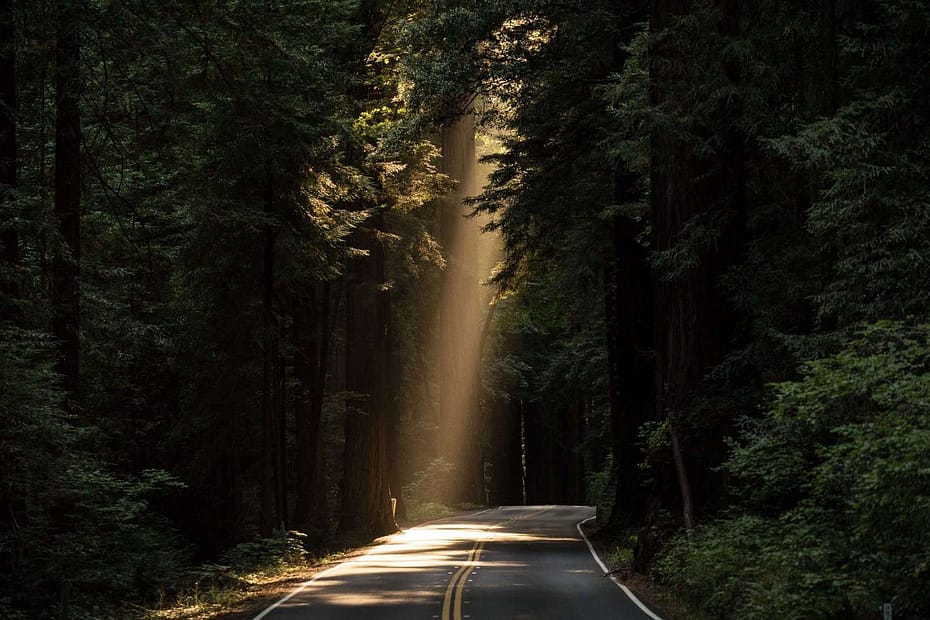There are a lot of reasons for feeling hopeless in 2022. And it’s understandable to wake up feeling overwhelmed and pessimistic about the future, given the trends of the last few years. However, there is a cost of hopelessness that you might not be aware of, affecting your mental health and your view of the future.
Today, I want to make a comprehensive argument for hope and present my case against despair. And if possible, leave you with some hope for the future by the end of this post.
The Year was 2022
Global War, Climate Change, Pandemics, Economic Instability.
There seems to be ample evidence that the future will be challenging, scary, and just a bad time, especially for the most vulnerable among us.
These concerning trends about the direction we as a species are taking are making young people feel quite uneasy about their future. Many feel like they have no reason to hope for a bright future or even have kids.
This is in big part because the world seems to be getting worse every year, and the struggles of ordinary people seem to fall on deaf ears. And sadly, the lack of accountability and interest from the people responsible is not alluding to any change.
Feeling Hopeless About the Future
In general, there seems to be a pervasive sense of hopelessness spreading among young people. Heck, even some of our close friends have succumbed to a mindset of hopelessness and a sense of impotence.

It’s hard to argue when people say things are not looking good. And to be honest, they are right. We are facing significant challenges, and our struggles are real.
But here’s the thing.
Letting yourself indulge in hopelessness and despair, as harch as it sounds, will only ensure that you do nothing, guaranteeing the worst outcome.
I believe that indulging in hopelessness and victimhood, as comfortable and safe as it feels, will only ensure more pain in your future.
In the Worst of Times
In his book A Man Search for Meaning, Victor Frankl shares, in my opinion, some of the most important lessons he has learned about hope and life.
Every person who survived the Auschwitz concentration camps did so because they had something to live for; they had hope and endured the most egregious and horrible crimes against them.
In contrast, every person who died did so due to succumbing to despair and hopelessness. And they died quickly.
They surrendered to what they perceived as their fate and let themselves be consumed by despair. Additionally, their minds stagnated, and their bodies essentially surrendered to any disease they had no energy to fight against.
So, as cheesy as it might sound, the truth is that giving up, despite the odds, doesn’t do us any good.
And the psychological impacts of hopelessness are pretty dire:
- Lethargy.
- Apathy.
- Lack of energy/motivation.
- Trouble sleeping/getting out of bed.
- Weak immune system.
- Propensity to depression and mental illness.
- Loss of appetite.
The Cost of Hopelessness
Having hope is painful, yes. Every day you might get reminders that things are not getting better. But having no hope is arguably worse.

Letting yourself become indifferent to the crimes of the few and the pain of the many will just guarantee that things continue as they are.
And hey, I know that pain sucks, no doubt about it. But pain is part of the human experience. Our job is to become strong and wise enough to embrace it and turn it into something meaningful. Something better.
It’s important not to let yourself feel defeated or be steered by hopelessness for too long because you stop caring and do nothing.
Hopelessness is the last tactic that those who want to keep the status quo have up their sleeve. And it’s really effective. However, if we endure, we will take away all the weapons to fight against change.
Even if things are really dire, if you give up is already game over.
A Case Against Despair
Here are some arguments as to why we should not only be hopeful but continue fighting and look forward to a bright future.
Climate Change

Here’s the reality. The estimations the UN agreed to commit to preventing climate change were to remain below 1.5 degrees above pre-industrial levels by 2100.
Unfortunately, if we don’t make drastic changes, the likely scenario will be around 3 degrees, which is terrible and unacceptable, especially for those in coastal areas and vulnerable countries dependent on the weather.
But the doom and gloom of an apocalyptic future have, for the most part, been already avoided. Yes, the planet will have a bad time, but it will survive, and humanity will not go anywhere.
And we can say that with enough confidence mainly because of all the progress we have accomplished in the last decade.
Furthermore, we can still make more progress and encourage more change to improve the 3 degrees prediction as long as we remain committed to keeping the fight.
Global War

Despite the constant fear-mongering we experience daily, we live in the most peaceful times in recorded history.
It’s easy to feel overwhelmed and drained by the constant barrage of terrible news. And yes, we should definitely remain concerned regarding the sad events still happening in the world. But, by and large, war and all other kinds of conflicts have been on a downward trend for hundreds of years.
This is especially true for international conflicts between states that, for the most part, have become dependent on each other and find warfare not only abhorrent but financially counterproductive.
All this is not to diminish the hardships people are going through right now. On the contrary, things are really concerning, and much needs to be done. But we should never forget that, despite the instability and uncertainty, we are still moving towards a better future.
Economic Instability

This is a tricky one because, for the most part, we have always been on a cyclical trend of prosperity and instability.
Yes, there are definitely a lot of concerning indicators, and paying 150 dollars just to fill up the gas tank sucks. But there’s no denying that the standard of living of the average person right now is the highest it has ever been.
If you were to ask me to choose between being a king in the Middle Ages or a Walmart employee in the present time, I would choose to be the Walmart employee in a heartbeat.
Once you think for more than a second, you will realize that being in a fancy castle and having gold and servants doesn’t really triumph over having healthcare and plumbing.
Pandemics

If there’s anything we have learned as a society in the last two years is that if people are sick, they won’t consume as much, won’t work much, and most importantly, won’t vote for you.
So, it stands to reason that a lot of money and resources are being put in the hands of the best and brightest to prevent this situation from happening again.
Yes, these last two years have cost us a lot in terms of financial stability and life. But this was a necessary setback to ground ourselves, rethink our trajectory, and make necessary changes.
Now, will we experience another pandemic in the future? Yes, very likely. But we will be much more prepared to tackle it this time.
Division

For the most part, this issue is the growing pains of a civilization struggling with two evolutionary processes going at wildly different speeds. One is the evolution of technology, going at light speed. The other is the evolution of our minds, lagging far behind at glacier speed.
Our capacity to find people all around the world with similar views and perspectives and communicate instantly is a wonder of technology and a terribly dangerous threat.
Echo chambers and misinformation have only accentuated extremist views and radicalized otherwise well-mannered people. And this trend seems to be only getting worse.
But there’s reason to hope.
More and more people are putting themselves out there to bring reason and diverse perspectives to the masses. And if you are reading this post, you are doing your part in educating yourself.
There are great people out there already doing tremendous work bringing the difficult conversations back to the table and being honest and vulnerable.
We need to keep engaging with each other.
A Comprehensive Argument for Hope
We have achieved a lot in the last decade.
The changes put into motion and the agreements reached by our leaders were nothing but wishful thinking back then.
Yes, things will still be challenging in the future, and many people will suffer. But the future is not hopeless.

We will survive, adapt, and endure to become a civilization that has overcome its hangups.
If you’re hesitant about having kids and starting a family because you want to spare them from a bleak future, all you’re doing is taking away their chance to try. Yes, they will struggle and suffer. But they will endure, amend our sins, and build a future that we could only dream of.
So don’t make a decision that important based on fear.
If you are overwhelmed with hopelessness, don’t become indifferent to the pain of others because you’re overwhelmed with your own. Instead, share the burden with others, and become a source of change.




Exactly right, Juan! As difficult as things look at times, today is so much better than 50 years ago.